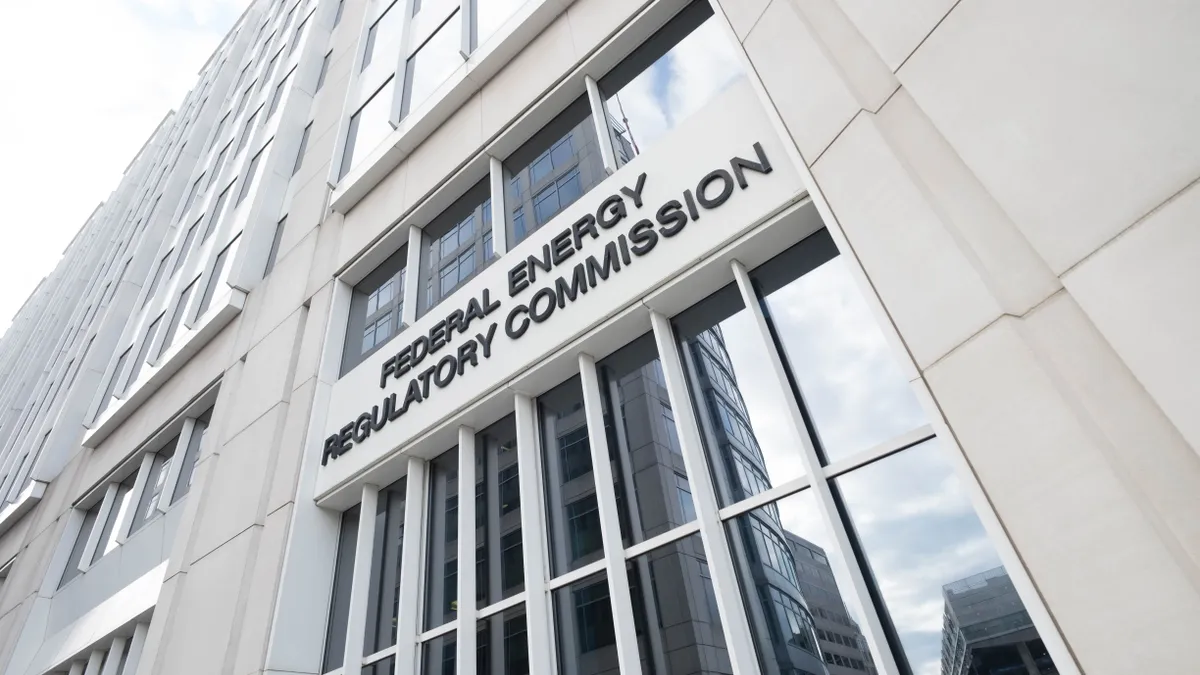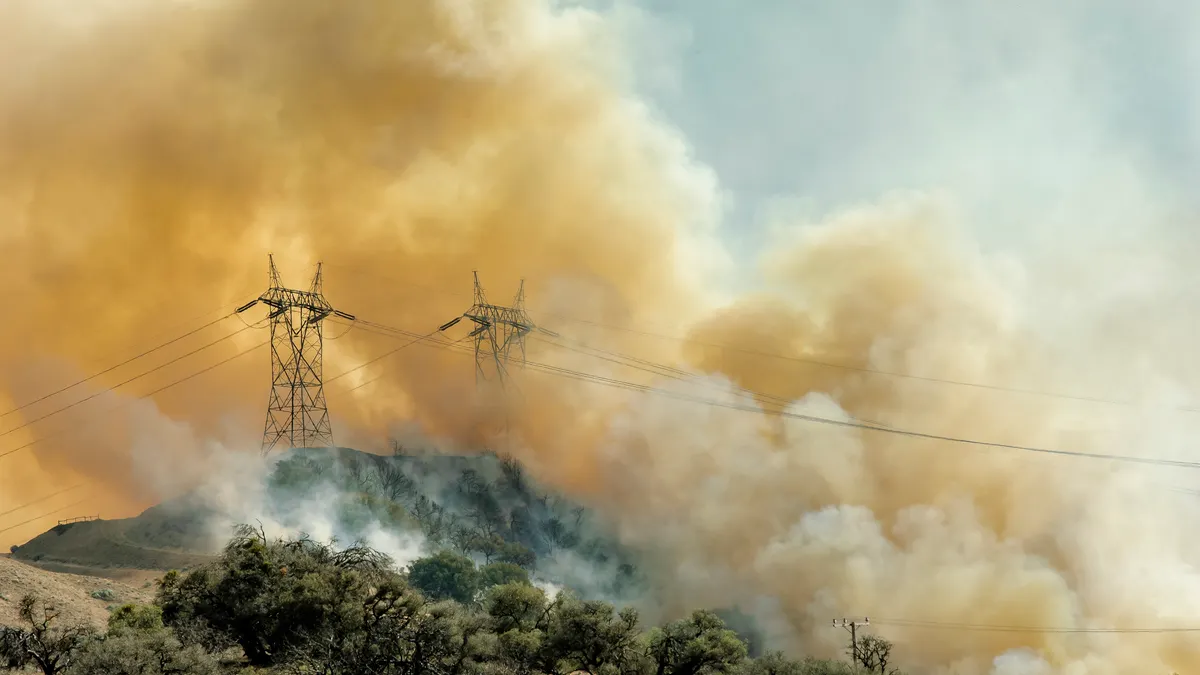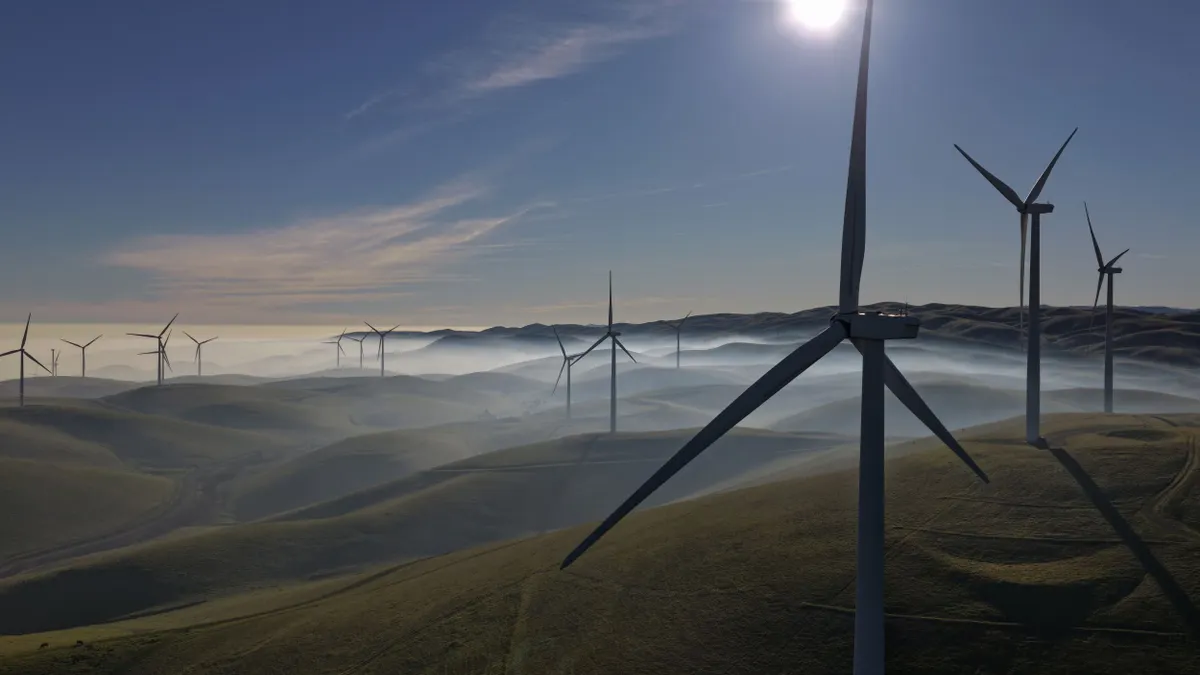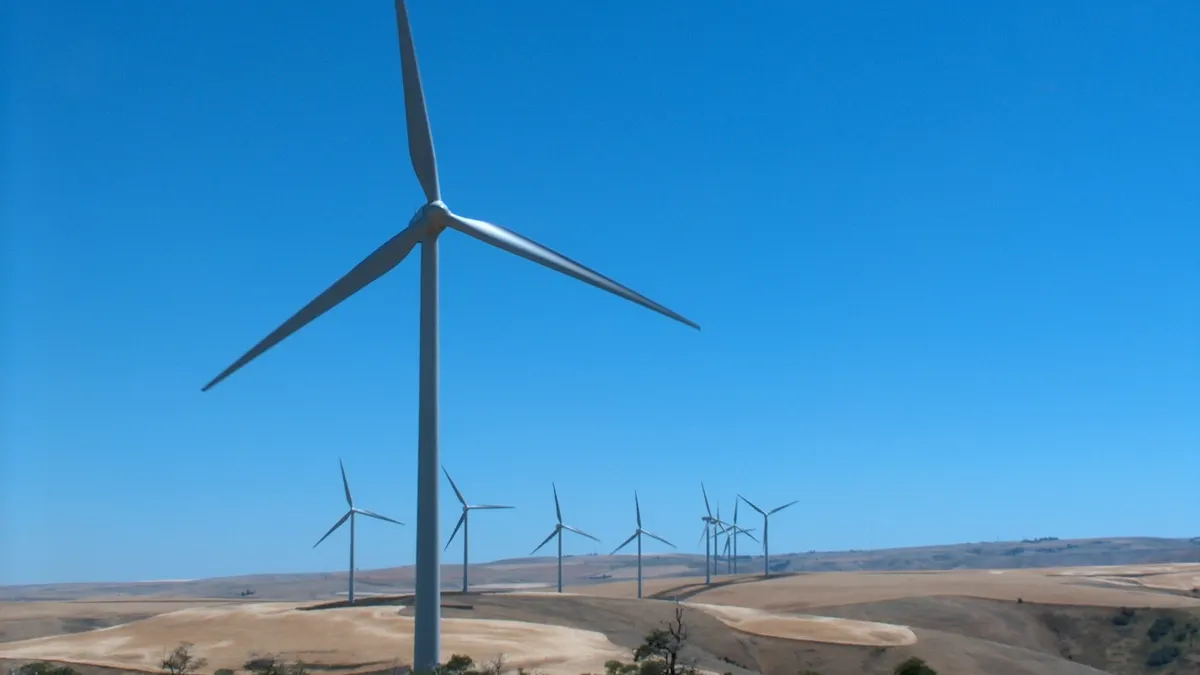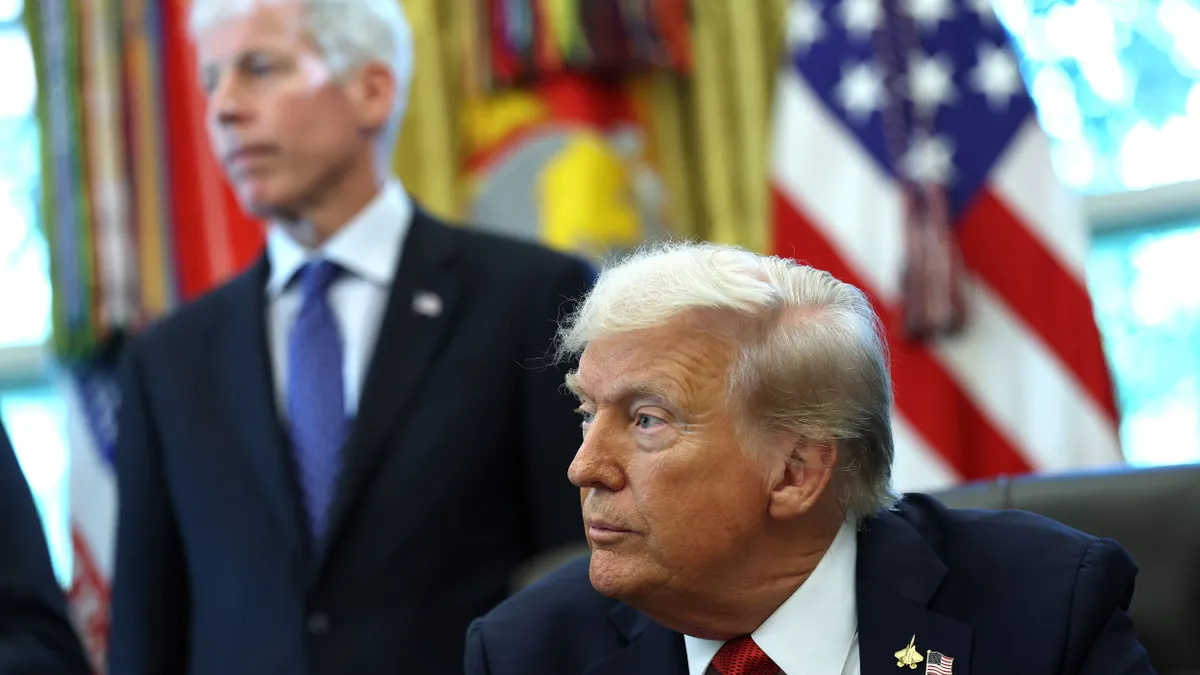A historic nine and a half hour discussion on carbon pricing attracted at least 2,000 viewers and broke previous attendance records for a Federal Energy Regulatory Commission technical conference, according to Chairman Neil Chatterjee.
The commission's estimate likely "shatters records for engagement for a FERC technical conference," Chatterjee told reporters Thursday morning.
But the Wednesday conference's high profile made it hard to ignore the omission of one key stakeholder group whose conflict with the commission has become increasingly obvious this year: states.
"I don't think they're our friend right now," New Jersey Board of Public Utilities President Joseph Fiordaliso said of FERC in an interview before the conference. The BPU and at least one other state regulatory body within a regulated wholesale market were in discussions with commission staff about being included on a state panel, but ultimately neither state was chosen to participate.
"It's certainly something not unexpected as far as FERC goes," said Fiordaliso. "I truly believe that the leadership at FERC has been dysfunctional for 3.5 years and it is something that is not friendly, in my opinion, to the states."
One of the key purposes of Wednesday's conference was to determine whether FERC has the legal authority to implement a carbon price, something that the first panel ultimately agreed was within FERC's jurisdiction if the tariff was brought to the commission through a grid operator's proposal. The next three panels all examined economic theories and market design issues, something that seemed "out of balance in light of the fact that there was only one state person ... among the 32 panelists," Susan Tierney, a former Department of Energy official who is now a senior advisor at Analysis Group, said in an email after the conference. She and others also noted the lack of gender parity — five of the 32 panelists were women.
"We know that there are brilliant females and people of color in the electric industry, so I think that FERC also missed a big opportunity to host a more diverse set of voices and faces," said Tierney.
Many stakeholders, including Tierney, who was a panelist, were broadly pleased that the commission held a conference on the topic in the first place, and overall found the conversations productive. But some said it was a "missed opportunity" to begin mending tensions between states and federal regulators.
A 'missed opportunity'
State-federal tensions reached "an all time high" this spring, Maryland's head regulator said in May. FERC, just one month earlier, had voted to largely uphold its controversial Minimum Offer Price Rule (MOPR) in the 13-state PJM Interconnection. And states were outraged by a proposed net metering overhaul that would have handed regulation of customer-sited generation across the country over to federal regulators.
FERC ultimately rejected the net metering petition on procedural grounds, but states in PJM remain unhappy with the MOPR, and some are even considering leaving the market altogether, despite projected high costs.
FERC "is an entity that I believe is more concerned about maintaining the status quo as far as energy generation is concerned, when orders are passed down that will make things more expensive for renewable energy," said Fiordaliso. His state is one of three that is considering pulling out of the PJM market.
So when New Jersey and at least one other state saw an opportunity to collaborate with federal regulators on the carbon pricing conference, they were excited to do so.
FERC staff "expressed genuine interest" in their proposal, said one state commissioner who did not want to be identified. But staff do not make the final call on who ends up on the panels. Generally they bring a preliminary lineup to the Chairman, and he or she, along with the other commissioners, make the final call.
Though the state was "not offended or disappointed that we were not selected," they were still "shocked" to see that there were no state voices with the exception of Utah, which is not within a regional transmission operator or independent system operator.
Part of the conference's main premise was to examine how state carbon pricing policies should interact with the wholesale markets, and participants could have learned a lot from states trying to pursue their clean energy goals under an RTO/ISO.
"Not having states represented at the table is, in many ways, a missed opportunity," said the regulator.
FERC remains market-focused
Chatterjee made one comment Wednesday that some surmised could indicate a shift in the commission's thinking on state policies.
"Our complex energy markets cannot be hermetically sealed from state environmental policies. That's just an undeniable fact," Chatterjee said in his opening remarks. "And it's evident to anyone who's watched us over the past several years, as we've grappled with the thorny issues that arise at the intersection of state policies and our markets."
His comment could indicate a broader attempt to harmonize state and federal policies, Jeff Dennis, general counsel and managing director for Advanced Energy Economy, said in an email.
"I'm watching to see if this is truly the start of a policy shift away from that kind of approach to the intersection of state and federal policy and toward harmonization. The conference was very helpful in that it signaled to states that FERC understands they have lawful policy goals for clean energy and decarbonization, and that FERC wants them to have options to achieve them in the wholesale markets," Dennis said.
But Chatterjee clarified to reporters that his focus remains on the markets, and continued to defend the PJM MOPR.
"We directed and expanded MOPR to protect the effective functioning of the market in the face of state subsidies, which are not a market mechanism. They are not transparent. They distort price signals. And they hamper competition," he said. "Yesterday's discussion was all about carrying forward our market protective work as the landscape evolves. So we're looking to what's next."
Chatterjee further told reporters he felt states were adequately included through various voices, including Exelon President and CEO Chris Crane for Illinois.
We "certainly always value interaction with state regulators," he said, adding later, "I want to be clear the views and concerns of states with RTO ISO markets were clearly represented by numerous panelists throughout today."
Some said that because the commission was specifically addressing wholesale market issues, it was unnecessary to include state perspectives.
"The states oversee the retail markets, not the wholesale markets," said former FERC Chair Jon Wellinghoff in an interview. "So I wasn't necessarily overly concerned that there was some lesser level of state representation than you might otherwise see. I didn't believe that there were necessarily state issues here that were particularly relevant."
However, Wellinghoff noted, there could have been more voices from developers within the markets, such as storage and renewables developers, and from that perspective states could have played a role in discussing the integration of distributed resources from the retail to wholesale markets.
Stakeholders also noted another key constituency that was missing — female voices and voices of color.
"Many voices are not present today, particularly the states and many of my female colleagues thinking and working in this space. I hope there will be an opportunity to solicit a broader sampling of views for the record and in future conferences and dockets," Kate Konschnik, director of climate & energy programs at the Duke University's Nicholas Institute for Environmental Policy Solutions, said in her opening statement during the conference.
Chatterjee also disputed this, noting that a number of women on staff were behind assembling the conference, and that he himself is Indian American.
"In my view, the main lack of diversity was the lack of people who opposed FERC having this conversation about a carbon price in FERC markets," he said.
"I was really amused, and a little put off by the notion that the Commission did not seek out diversity," he added.



